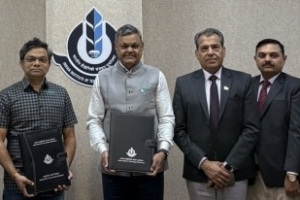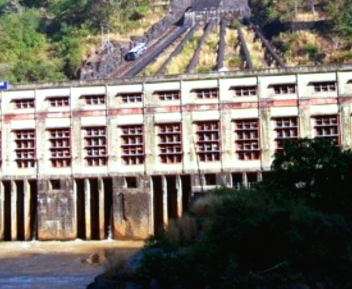
Odisha launches Pumped Storage Project Policy to boost Renewable Integration
Bhubaneswar, Sep 18 (UNI) The Odisha Government has announced the Pumped Storage Project (PSP) Policy, aimed at accelerating the development of energy storage infrastructure and enabling smoother integration of renewable energy into the state’s power grid.
Deputy Chief Minister and Energy Minister Kanak Vardhan Singh Deo described the policy as a crucial step toward grid stability and achieving Net Zero goals.
He highlighted that streamlined execution and faster approvals under the policy will allow Odisha to rapidly scale up PSP capacity.
Under the policy, PSPs in Odisha will enjoy all benefits available under OREP-22, along with additional key exemptions, including no electricity duty or cross-subsidy surcharge on input energy,no water cess for non-consumptive use,no obligations to provide free power or contribute to LADF.
Developers are also eligible for central budgetary support and full renewable energy incentives if the energy input is sourced from in-state renewables.
Projects sourcing energy from outside Odisha will face no penalties. However, projects already availing IPR incentives cannot claim benefits under this policy or OREP-22.
“Through the PSP Policy, Odisha is laying the foundation for a resilient, renewable-powered future. This is a decisive step toward sustainable growth and climate-conscious development,” said Deputy Chief Minister Singh Deo.
GRIDCO has been designated as the nodal agency for allocating both self-identified and state-identified PSP sites.
Official sources stated that about 45 potential PSP sites have been identified and published on GRIDCO’s official web portal. Operational guidelines for the policy were notified yesterday.
All projects will follow the Build-Own-Operate-Transfer (BOOT) model with a 40-year concession period, extendable by 30 years. Post-concession, projects will be transferred to the State Government, except for captive PSPs, which will retain CGP status.
Pumped Storage Hydro Projects are emerging as a vital enabler of India’s energy transition.
By storing surplus energy during off-peak hours and releasing it during periods of high demand or low renewable availability, PSPs provide cost-effective, long-duration, grid-scale storage.
PSPs address the intermittency of renewable energy and enhance grid stability by offering instant load response, black start capability, spinning reserves, frequency regulation, and other critical ancillary services.















